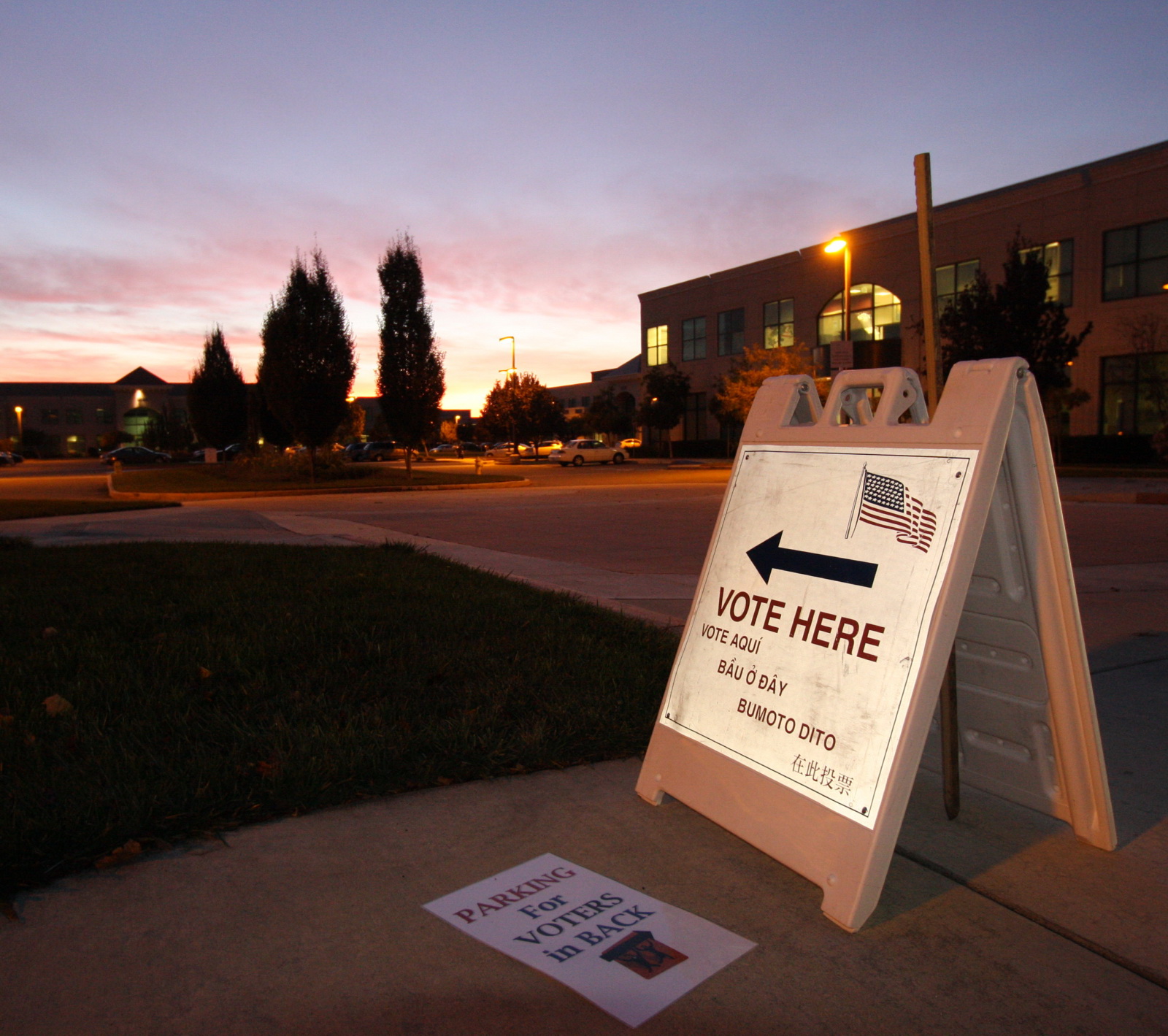16 million Americans will vote on hackable paperless machines

Despite the obvious risk and years of warnings, at least eight American states and 16 million American voters will use completely paperless machines in the 2020 US elections, a new report by New York University’s Brennan Center for Justice found.
Paperless voting machines persist despite a strong consensus among US cybersecurity and national security experts that paper ballots and vote audits are necessary to ensure the security of the next election. The Brennan Center report points to the Senate Intelligence Committee investigation of Russian interference in the 2016 section, which also recommends paper ballots for security and verification.
America’s largest election technology company, Election Systems & Software, announced earlier this year that it would stop selling paperless machines. ES&S spokeswoman Katina Granger said the entire industry should follow suit.
“Using a physical paper record sets the stage for all jurisdictions to perform statistically valid post-election audits,” Granger told MIT Technology Review. “We believe that requiring a paper record for every voter would be a valuable step in securing America’s elections.”
ES&S, the largest election tech vendor in the country, covers 44% of American voters, a 2016 report by the University of Pennsylvania’s Wharton School found. Dominion Voting Systems covers 37% of voters, and Hart InterCivic 11%. Both still sell paperless voting machines.
Senator Ron Wyden, a leading Capitol Hill voice on election security, has persistently pushed legislation that would federally mandate paper ballots, among other security measures. The legislation has been blocked by the Republican Senate majority leader, Mitch McConnell.
“Selling a paperless voting machine is like selling a car without brakes—something is going to go terribly wrong,” Wyden says. “It is obvious that vendors won’t do the right thing on security by themselves. Congress needs to set mandatory federal election security standards that outlaw paperless voting machines and guarantee every American the right to vote with a hand-marked paper ballot. Experts agree that hand-marked paper ballots and post-election audits are the best defense against foreign hacking. Vendors should recognize that fact or get out of the way.”
Chris Krebs, the top cybersecurity official in the Department of Homeland Security, said last week that paper ballot backups are needed in 2020. Congressional and law enforcement officials have repeatedly said that foreign powers are poised to interfere in the upcoming American elections.
Most of the states using completely paperless machines in 2020 are not historically battleground states, which are seen as the most valuable targets for interference and impact. Texas, Louisiana, Tennessee, Mississippi, Kansas, Indiana, Kentucky, and New Jersey will use paperless machines.
Some of those states, however, are more closely contested than usual. Texas in particular has been turning increasingly purple. In 2016, Democratic Senate candidate Beto O’Rourke stunned national observers by putting up a close race against Republican Ted Cruz. If Texas starts producing more close races, its persistence in using paperless machines—the result of a stalled legislative battle over election security—will make it a more tempting target.
“If my goal is to throw another US election, I have limited resources. I can’t attack everywhere. I want to focus on battleground states where even a small push can have a large impact,” says Dan Wallach, a computer science professor at Rice University and a member of the Technical Guidelines Development Committee of the US Election Assistance Commission.
Security experts overwhelmingly agree that paper ballots and risk-limiting audits are necessary to secure elections in the 21st century. Emblematic of that consensus is a 2018 report from the National Academies of Sciences, Engineering, and Medicine titled “Securing the Vote: Protecting American Democracy.” The conclusions: Elections need human-readable ballots and mandated audits before election results are certified.
Elections are managed primarily by US states as opposed to the federal government. Technical and security requirements vary by state and even by local government. Despite slow movement and resistance from some corners of the country, progress away from paperless machines has been significant: compared with the 16 million Americans who will vote on paperless machines in 2020, 27.5 million did so in 2016, according to the Brennan Center report.
Backups, however, are not a silver bullet for election security. Security experts say paper ballots are so important precisely because subsequent audits are necessary, and 17 of the 42 states requiring paper do not require audits.
“The name of the game as election officials is to produce election results that are convincing to the loser,” Wallach says. “The winner is happy to win; the loser requires evidence. In the face of propaganda and interference, you have to produce convincing results—convincing the loser to say, ‘Yeah, I lost.’ This is why people like paper. Once paper has been printed, it’s hard for someone like Vladimir Putin to reach out over the internet and change what’s already been printed on dead trees.”
Audits mean a high chance that incorrect outcomes can be detected with statistical efficiency, the National Academies of Sciences concluded.
The experts recommended that all voting machines should use human-readable paper ballots and that machines without the ability for independent auditing should be removed from elections right away.
Deep Dive
Policy
Is there anything more fascinating than a hidden world?
Some hidden worlds--whether in space, deep in the ocean, or in the form of waves or microbes--remain stubbornly unseen. Here's how technology is being used to reveal them.
What Luddites can teach us about resisting an automated future
Opposing technology isn’t antithetical to progress.
Africa’s push to regulate AI starts now
AI is expanding across the continent and new policies are taking shape. But poor digital infrastructure and regulatory bottlenecks could slow adoption.
A brief, weird history of brainwashing
L. Ron Hubbard, Operation Midnight Climax, and stochastic terrorism—the race for mind control changed America forever.
Stay connected
Get the latest updates from
MIT Technology Review
Discover special offers, top stories, upcoming events, and more.